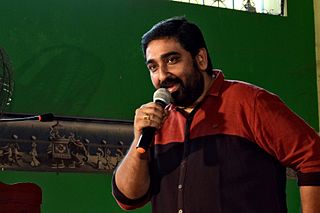A Quote by Lewis Gannett
Of all the poetry written in our generation, Frost's is most likely to stand the test of time
Quote Topics
Related Quotes
Our common stock of words embodies all the distinctions men have found worth drawing, and the connexions they have found worth marketing, in the lifetimes of many generation; these surely are likely to be more numerous, more sound, since they have stood up to the long test of thee survival of the fittest, and more subtle, at least in all ordinary and reasonably practical matters, than any that you or I are likely to think up in our arm-chairs of an afternoon-the most favoured alternative method.
Speaking of people I had to exclude: Hank Williams. which is to say, songs are part of lyric poetry in my book, my thinking. In fact they are the urgent element of poetry in our time, they carry the most emotion for the most people in our culture. everyone LOVES poetry, because we all love (one form or another) of rock and roll (be it folk to emo to rap). It's all rock and roll and all lyric poetry.
For instance, our music, They Might Be Giants, has this element of humor, which is probably the most uptight part of what we include in our music, because we're in part very self-conscious guys, and we want our music to stand up to the test of time, not just be visceral comedy records. We love humor and comedy, but there's this aspect to it that runs counter to what is included in most music.
So we have a choice to make. We can once again let Washington's bad habits stand in the way of progress. Or we can pull together and say that in America, our destiny isn't written for us but by us. We can place good ideas ahead of old ideological battles, and a sense of purpose above the same narrow partisanship. We can act boldly to turn crisis into opportunity and, together, write the next great chapter in our history and meet the test of our time.
In a few hundred years, when the history of our time will be written from a long-term perspective, it is likely that the most important event historians will see is not technology, not the Internet, not e-commerce. It is an unprecedented change in the human condition. For the first time - literally - substantial and rapidly growing numbers of people have choices. For the first time, they will have to manage themselves. And society is totally unprepared for it.
Life is a continuous flux. Our nonhuman ancestors bred, generation after generation, and incrementally begat what we now deem to be the species homo sapiens - ourselves. There is nothing about our ancestral line or about our current biology that dictates how we will evolve in the future. Nothing in the natural order demands that our descendants resemble us in any particular way. Very likely, they will not resemble us. We will almost certainly transform ourselves, likely beyond recognition, in the generations to come.
The question now becomes about defining your terms. What is literature? Unless we allow it to encompass the oral tradition from which it grew, which means taking it back to Homer and beyond, it demands the written word - poetry and prose. [Bob] Dylan is no slouch at the written word, both in its own right, and transcribed from his lyrics, which have often been acclaimed as poetry and may well stand up as such. But that is not his métier.






































